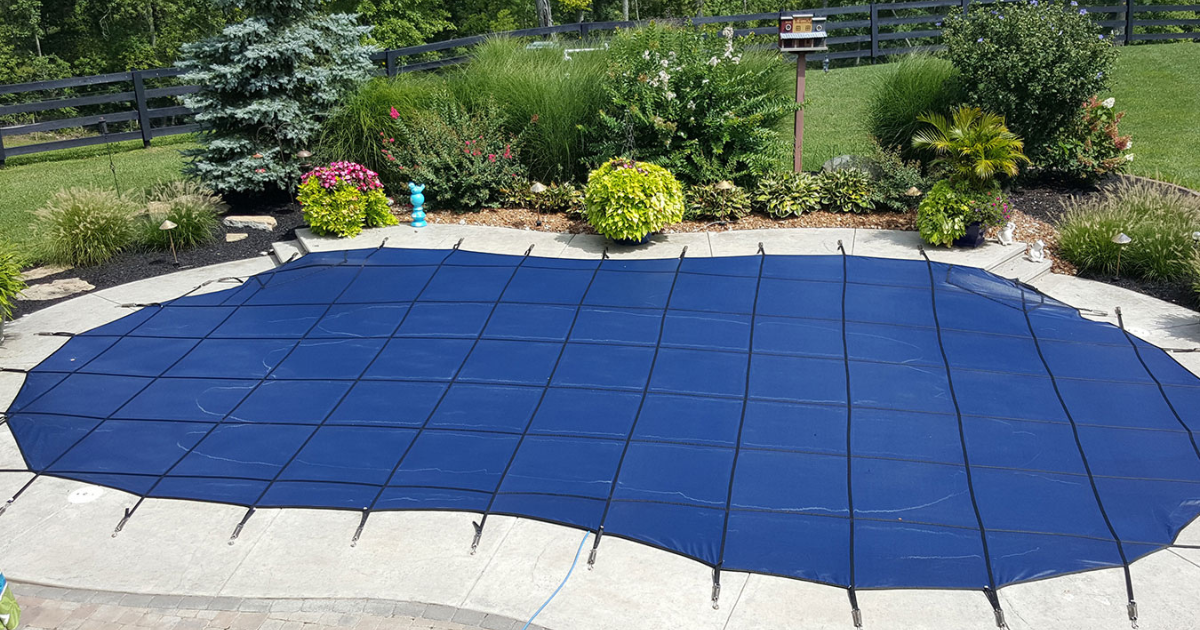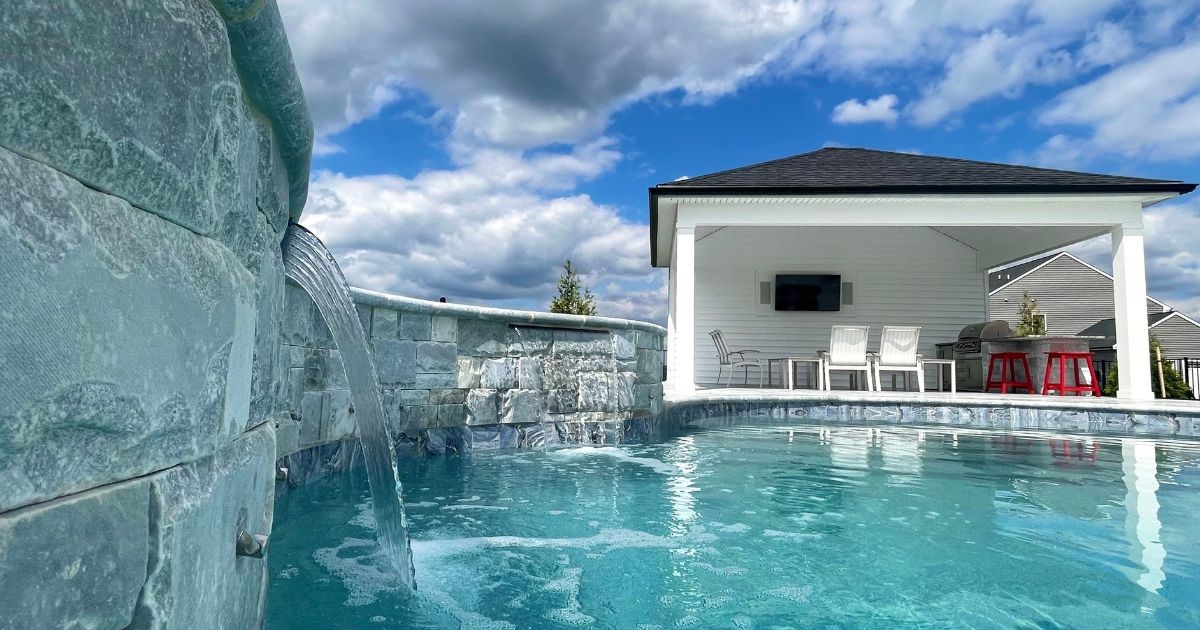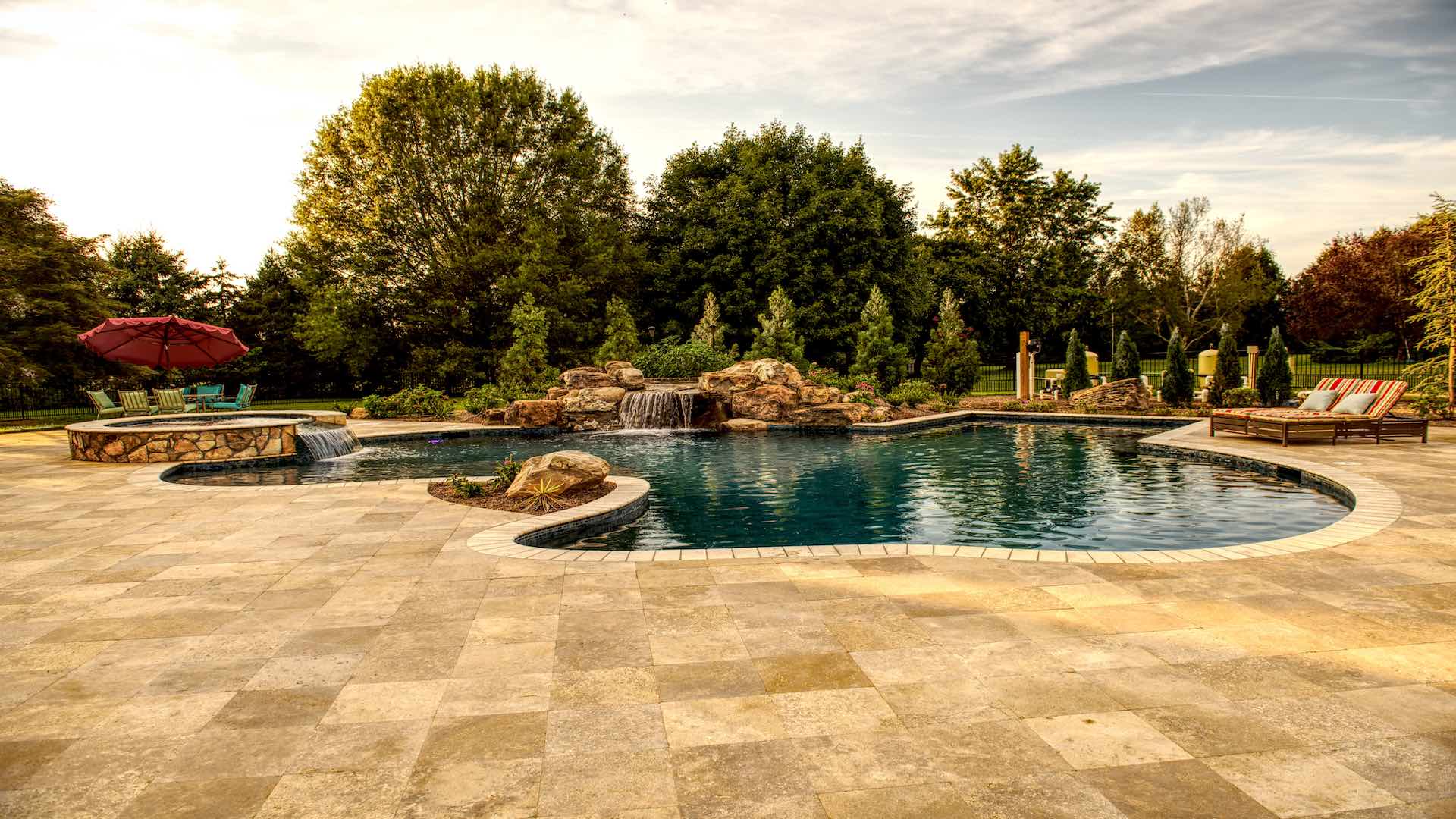The leaves are turning, the temperature is dropping—it's time to prepare your aquatic oasis for…

The Ultimate Pool Maintenance and Care Guide
Owning a swimming pool can feel like the ultimate luxury, but it comes with a set of responsibilities to keep things running smoothly. Whether you’re new to pool ownership or a seasoned pro looking to refine your routine, this guide has you covered.
From balancing water chemistry to maintaining filters, we’ll walk through everything you need to know to keep your pool in pristine condition all year long.
What Maintenance is Involved with Owning a Swimming Pool?
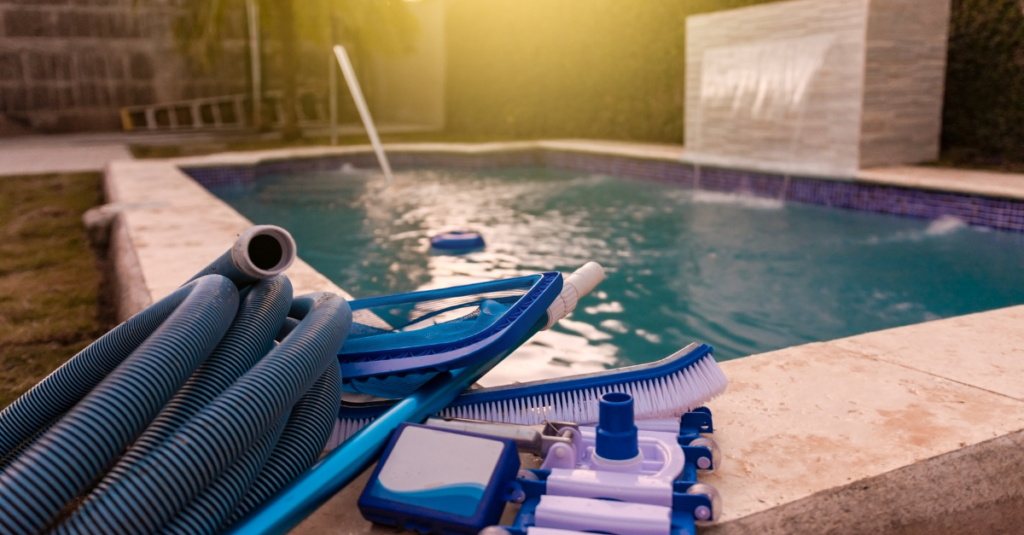
Owning a pool requires regular upkeep to ensure it remains clean, safe, and ready for use. Here are the essential tasks every pool owner should include in their maintenance routine:
1. Skimming and Cleaning
Leaves, insects, and other debris can quickly accumulate on the surface of your pool. Regularly skimming the surface will not only keep the water clear but also prevent debris from sinking to the bottom.
You can use a hand-held skimmer or invest in an automatic pool skimmer to make your life easier.
2. Brushing and Vacuuming
Algae and dirt can build up along your pool’s walls and floor. Brushing these surfaces weekly helps prevent this buildup. After brushing, vacuum your pool as needed to remove any debris that has settled.
3. Water Chemistry
Maintaining the right chemical balance is critical to the health of your pool (and those swimming in it). More on this below!
4. Filter Maintenance
Your pool’s filter system is essential for keeping the water clean and clear. Regularly cleaning and maintaining your filter helps it function efficiently, reducing the risk of cloudy water or equipment failure.
5. Winterizing (Off-season Prep)
If you live in an area that experiences cold winters, prepping your pool for the off-season is vital. This includes lowering the water level and securely covering the pool.
How to Properly Maintain Swimming Pool Water Chemistry
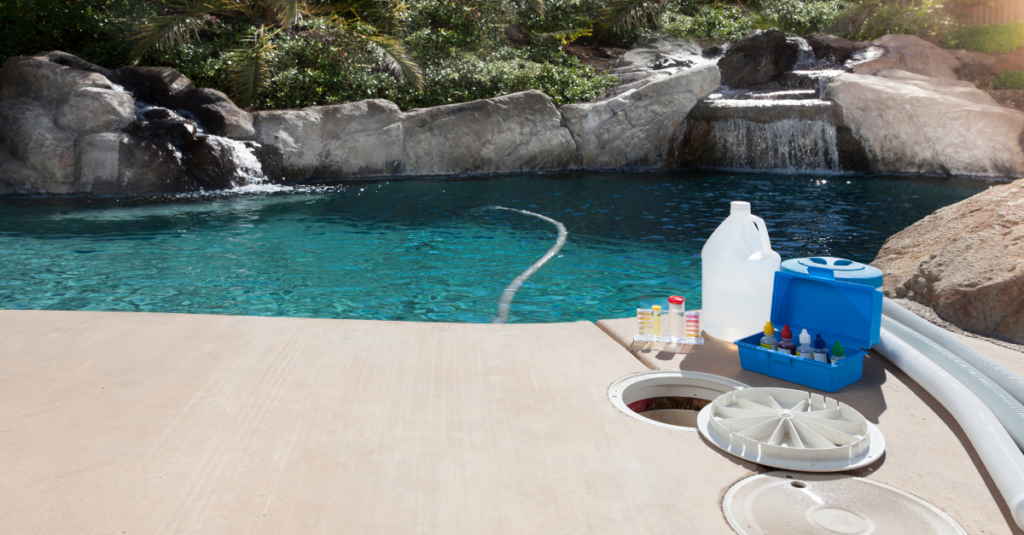
Water chemistry is one of the most crucial components of pool maintenance. Properly balanced water not only keeps your pool free from harmful bacteria and algae but also ensures that the water is comfortable for swimmers.
Here’s what you need to monitor:
1. pH Level
The pH level measures how acidic or alkaline your pool water is. Ideally, it should be between 7.2 and 7.8. A pH that is too low can cause corrosion to your pool’s surfaces, while a high pH can lead to scaling.
2. Chlorine
Chlorine acts as the primary sanitizer in most pools, eliminating harmful bacteria and keeping the water safe. Keep chlorine levels between 1.0 and 3.0 ppm (parts per million) for optimal results.
3. Alkalinity
Total alkalinity helps stabilize the pH levels in your pool. The ideal range is between 80 and 120 ppm. When alkalinity is too low, the pH can fluctuate wildly. Too high, and it becomes more difficult to maintain proper pH levels.
4. Calcium Hardness
Maintaining a proper calcium hardness level (200 to 400 ppm) prevents erosion of your pool’s plaster or concrete surfaces. Too little calcium can cause water to draw minerals from the pool structure, while too much calcium can result in scaling.
5. Phosphates
Too many phosphates can cause your pool to become green and cloudy. Try to keep levels to a minimum to avoid increased algae growth and a more expensive and extensive removal process.
We recommend testing your pool’s water at least once a week and more often during periods of heavy use or extreme weather. Test kits or strips are widely available and easy to use.
How to Minimize Pool Maintenance Costs
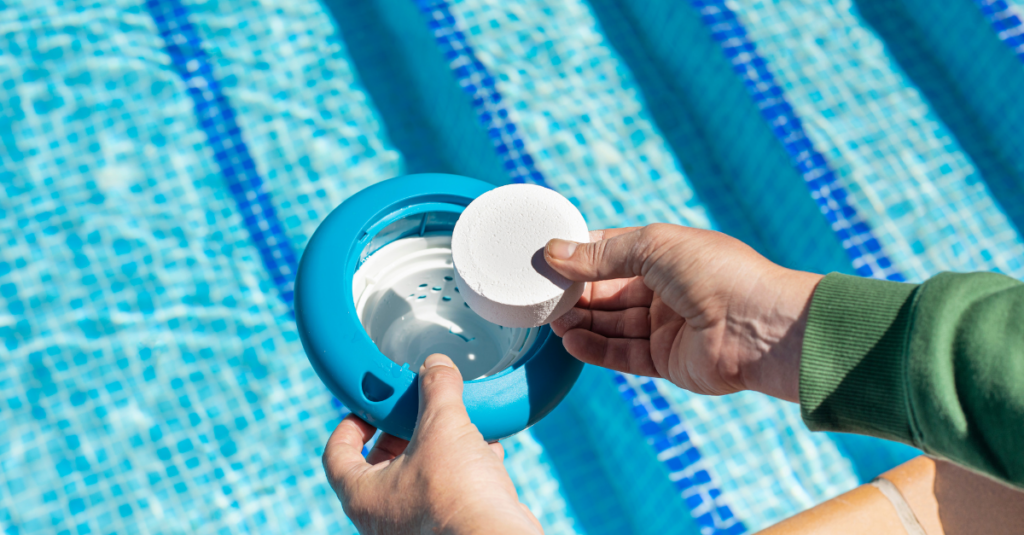
Maintaining a pool doesn’t have to come with sky-high costs. With some strategic adjustments, you can cut back on expenses without compromising the quality of your pool care. Here are five key tips to help you reduce your pool maintenance costs:
1. If you heat your pool, keep the temperature lower
Heating your pool can be one of the biggest contributors to your electricity bill. While it’s important to keep the water comfortable for swimming, the warmer the pool, the more energy is required to maintain that temperature.
During cooler months or when the pool isn’t in use, lower the temperature to reduce heating costs. You can still keep it warm enough to swim, but cutting back a few degrees can make a significant difference on your bill.
2. Clean your pool filter regularly
It’s important to regularly clean your pool filter to remove debris and keep it functioning at its best. If possible, consider running the filter at night when electricity rates may be cheaper, rather than keeping it on 24/7.
Most pools don’t need continuous filtration, so optimizing filter runtime can lead to savings.
3. Invest in an energy-efficient pump
Pool pumps come in different types, with variable-speed pumps being the most energy-efficient option. Although they have a higher upfront cost, variable-speed pumps use less electricity than traditional one-speed pumps, potentially saving you hundreds of dollars in energy costs over time.
Plus, in some areas, you may even be eligible for energy rebates when purchasing an energy-efficient pump.
4. Cover your pool at night
Pool covers do more than keep leaves and debris out—they can also help reduce water evaporation and heat loss, which saves on heating costs. Covering your pool at night can retain warmth and minimize the need to constantly reheat the water, especially during cooler months.
A pool cover can also reduce cleaning time, as it keeps out debris, meaning less maintenance overall. You can also get an automatic pool cover to make the job easier.
5. Balance Your pool’s pH and stabilizer levels
Maintaining proper water chemistry not only ensures a safe swimming environment but can also save you money. Regularly test and balance your pool’s pH and chlorine levels to avoid overusing chemicals.
It’s also important to monitor stabilizer levels, as stabilizers help chlorine maintain its effectiveness. By keeping your pool’s chemistry properly balanced, you prevent unnecessary spending on excess chemicals and avoid the risk of costly water quality issues.
Let’s Take a Closer Look at your Pool Filter
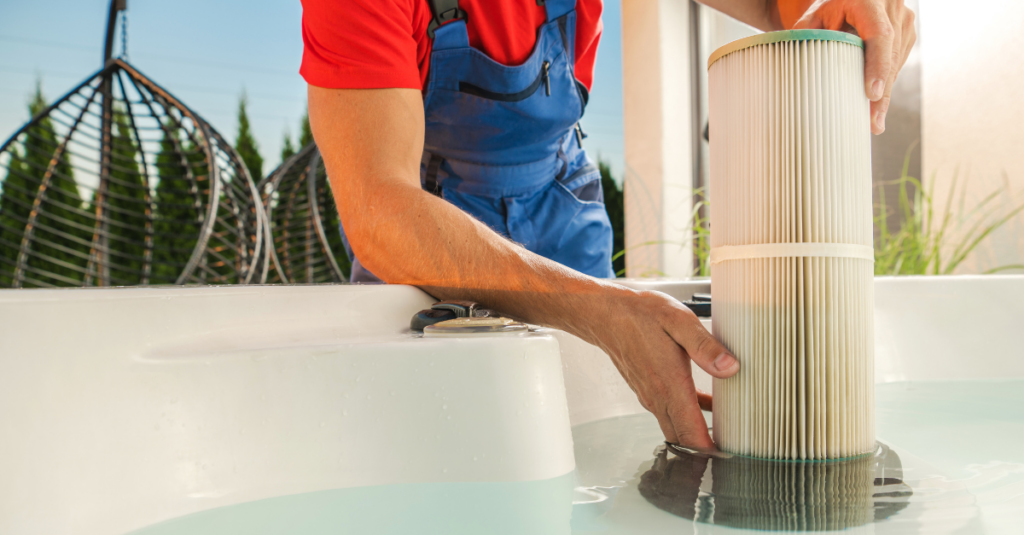
Maintaining crystal-clear pool water isn’t just about adding chemicals—it’s also about keeping your pool’s filtration system in top shape. Your pool filter works tirelessly to remove debris and contaminants, ensuring a safe and enjoyable swimming experience.
However, like any hardworking piece of equipment, it needs regular attention to function at its best.
How Often Should Sand Be Replaced in a Pool Filter?
Sand filters are one of the most popular options for keeping pool water clean, but the sand inside the filter will eventually lose its effectiveness. Over time, the sand particles become smooth and less capable of trapping debris. Most pool experts recommend replacing the sand in your filter every 3 to 5 years.
To ensure your sand filter stays in good shape, backwash it regularly—ideally once a week or whenever the pressure gauge shows a 7 to 10 psi increase from the normal reading.
What is the Best Way to Clean a Pool Filter?
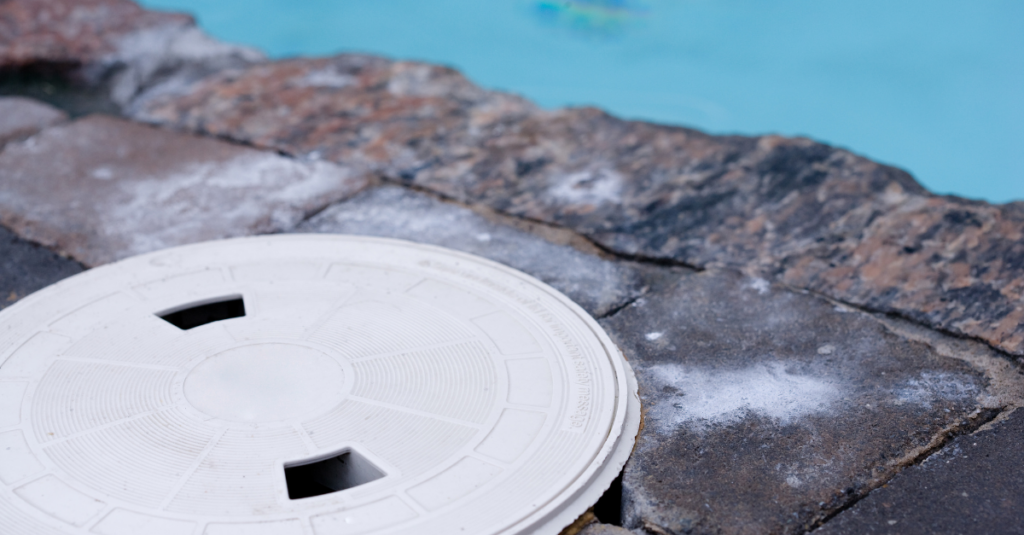
Filters play a vital role in keeping your pool water clear. Whether you have a sand, cartridge, or DE (diatomaceous earth) filter, cleaning it regularly will ensure that your pool water remains pristine:
- Sand Filters: Sand filters require backwashing to remove trapped debris. Backwash the filter until the water runs clear, then rinse and reset the valve.
- Cartridge Filters: Cartridge filters should be removed and rinsed with a garden hose to clear out debris. For a deeper clean, soak the cartridge in a filter-cleaning solution. Depending on usage, cartridges should be replaced every 1-2 years.
- DE Filters: Backwash your DE filter regularly, and after backwashing, add fresh DE powder. If the filter grids become clogged, remove and clean them using a hose or soak them in a cleaning solution.
Ready for Exceptional Outdoor Living?
Now that you’ve mastered the essentials of pool filter maintenance, you might be thinking about upgrading your outdoor living space.
Whether you’re dreaming of a brand new pool to complement your newly acquired maintenance skills or you’re looking to enhance your existing pool area with stunning hardscaping, Woodfield Outdoors is here to turn your vision into reality.
Schedule a call today to learn more.

